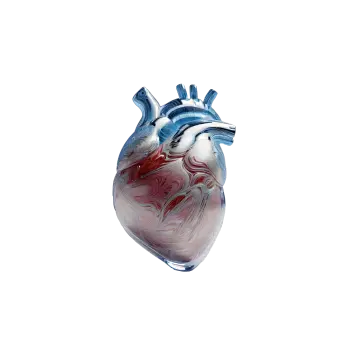Health benefits of quitting smoking
Quitting smoking is one of the most significant steps towards improving your health and reducing the risk of serious diseases. You probably already have a good grasp of this as you're currently reading this article. And improved health with a reduced risk of serious diseases is your "why" and a strong reason to keep fighting towards the goal to be a non-smoker.
How smoking negatively affects your body
Smoking affects the body in many negative ways, from increasing the risk of lung cancer and cardiovascular diseases to damaging the respiratory organs and weakening the immune system. Its impact extends across various organs and systems, making it crucial to address tobacco addiction.
Smoking also increases the risk of developing type 2 diabetes and complicates the course of the disease, further emphasizing the need to abstain from cigarettes. In addition, smoking can affect reproductive health in both men and women, increasing the risk of infertility, miscarriage, and pregnancy complications.
By making conscious choices and seeking support, you can become smoke-free and promote your long-term health and well-being.
Become smoke-free – 5 tips to help you along the way
It's challenging to adopt new habits, especially when dealing with an addiction that needs to be overcome. Here are five concrete tips and pieces of advice to help you quit smoking now that you've decided to kick the habit.
- Define a clear goal, your "why," and set a concrete deadline, such as New Year's Day or Thursday of week 7 if it seems more achievable for you to reach your goal then.
- Be prepared for withdrawal symptoms; it's important to seek support from friends and family who can help you remember your "why."
- Find ways to manage stress and make sure to reward yourself when you reach small milestones, such as being smoke-free for 24 hours, a week, two weeks, a month, etc.
- There are also smoking cessation aids that you can use.
- Make sure to avoid smoking triggers, such as attending parties and drinking alcohol. Define your smoking triggers for yourself before you quit smoking.
Understand how smoking has affected your body
You can also review your values where smoking affects your body to get an overall picture of how smoking has impacted your body. This can be done by, for example, checking your cholesterol, blood pressure, and C-reactive protein (CRP) to get an indication of heart and vascular health. These markers and others, such as your blood sugar and blood count, are tested in our various health checks Comprehensive Health Check, Men's Health Check, Women's Health Check. Gaining insight into your health can further motivate you to remain smoke-free and invest in your long-term health.
Health benefits of quitting smoking
When you quit smoking, you create the conditions for better and healthier health. Here are some health benefits you gain when you become smoke-free:
- You significantly reduce the risk of many serious diseases.
- You gain better lung capacity and respiratory health, reducing the risk of lung diseases such as COPD.
- Circulation improves, and your blood pressure normalizes, reducing the risk of stroke and heart attack.
- Your immune system strengthens, making it easier for your body to fight infections and diseases.
- If you plan to have children, your reproductive health can improve after quitting smoking. Smoking can affect fertility and increase the risk of complications during pregnancy.
- Skin health improves, reducing the risk of premature aging, such as premature wrinkles.
We hope this article gives you some encouragement and support now that you've decided to create the conditions for better health, and we wish you the best of luck.


























